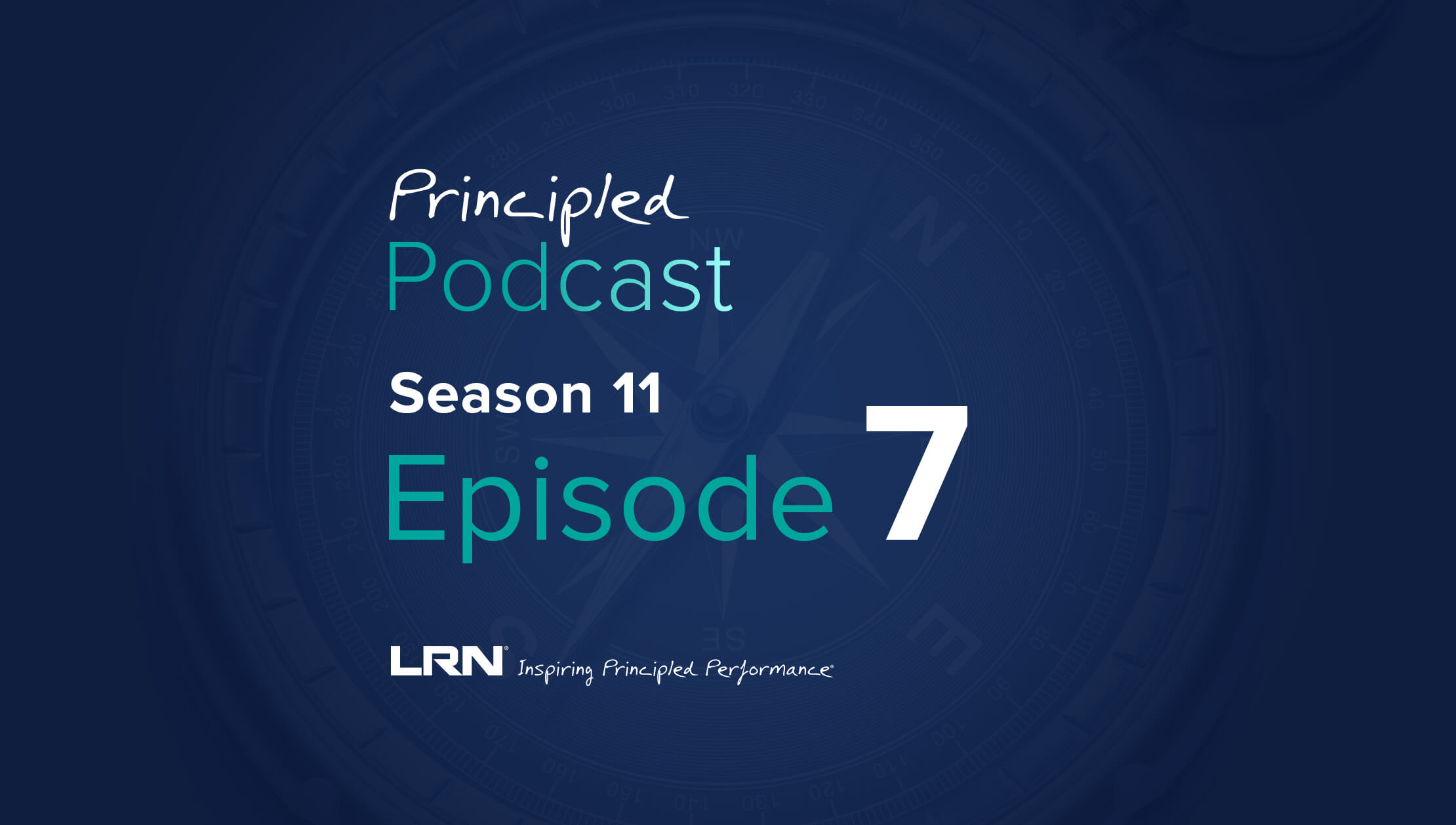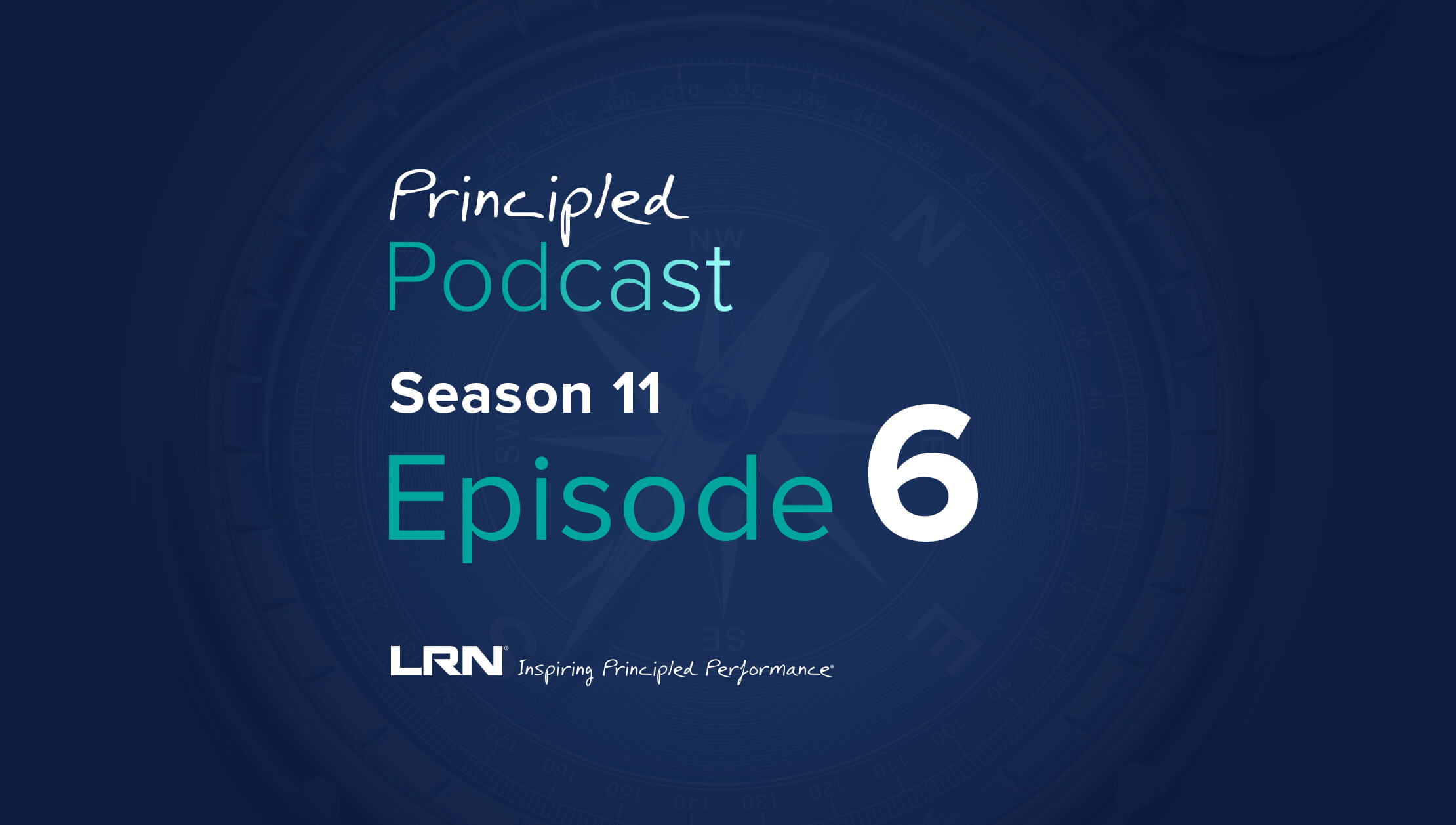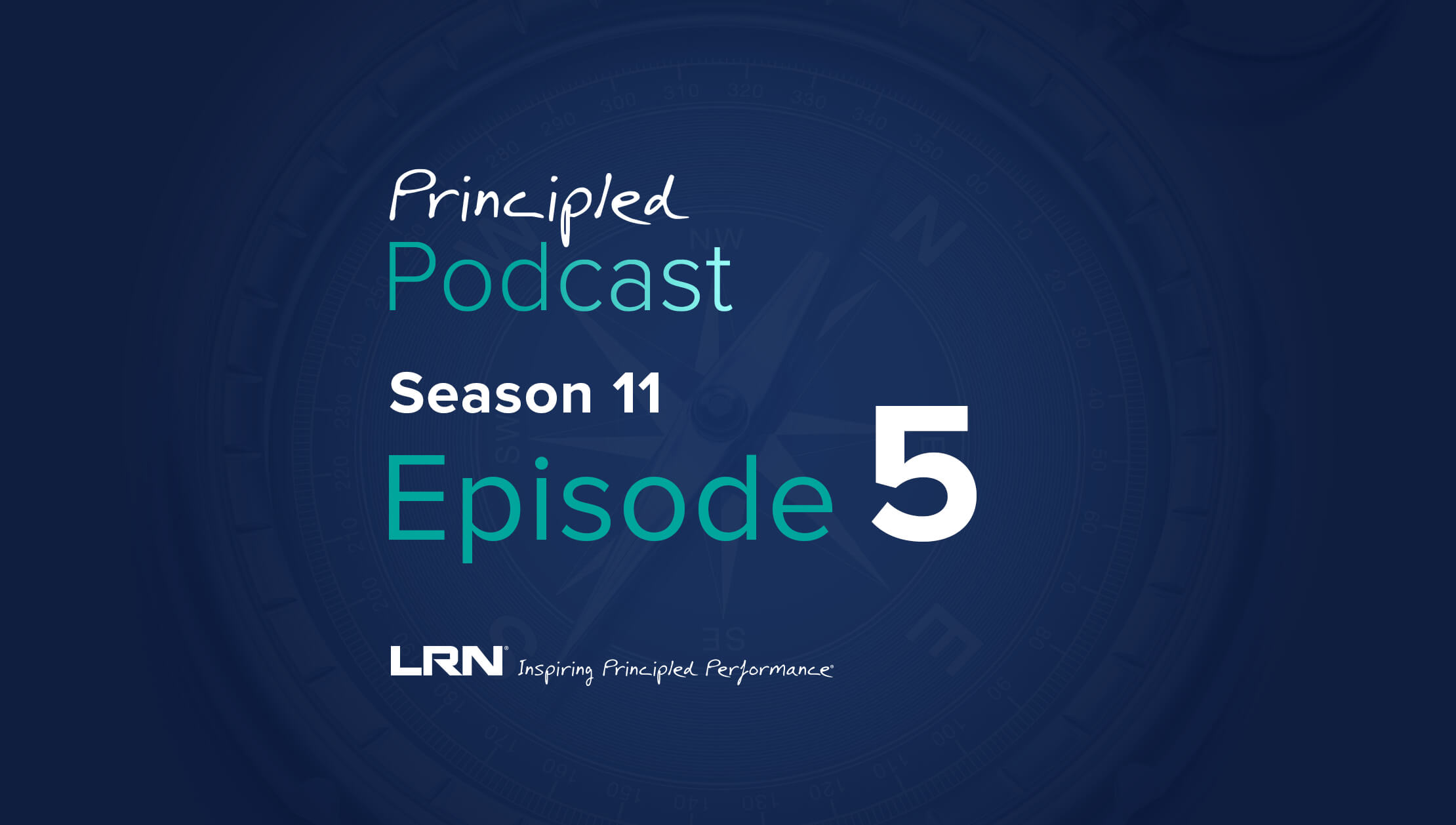We all recognize that the days of “checklist compliance” (measuring E&C program effectiveness by the number of employees trained or how often the Code of Conduct is updated) are dead and gone. Regulators have been pushing (and rightly so) for a focus on impact and risk mitigation, not simply a list of activities or blind benchmarking. Highly effective E&C programs focus on values, organizational justice, business strategy, and positive impact on your company culture. These programs embrace accountability and actively encourage reporting misconduct without retaliation.
These were the main takeaways from a recent ECI panel moderated by my LRN colleague, Susan Divers. She was joined by Lauren McGinley, Vice President, General Counsel, Secretary, Chief Ethics and Compliance Officer at Noblis; and Jorge Dajani, Chief Ethics and Compliance Officer at The World Bank. Lauren and Jorge discussed the importance of looking at an organization’s risks rather than blindly benchmarking against scorecards of other organizations. In addition, they examined measuring outputs vs inputs and stressed that the entire company must embrace accountability for E&C—it can’t just be something the E&C department mandates.
Susan shared some relevant results from LRN’s 2021 Program Effectiveness Impact (PEI) report Found here. The results showed that rules encourage people to do the minimum, while in companies that emphasized values, leaders met the challenge and ethical cultures grew stronger. It was also interesting to note that senior leadership gave their companies much higher scores than middle managers did.
Covid’s impact on the way we work and the way values were communicated
Noblis and The World Bank understood that their employees’ mental well-being was going to be impacted not only by Covid but also by recent political and racial unrest. They needed to focus on the whole person and therefore relied heavily on reinforcing the company’s core values. Communication and transparency were crucial, and adopting those measures allowed their cultures to become stronger.
Noblis experienced much of what the PEI results showed—in particular, a disconnect between how senior leaders viewed adaptability vs. what middle managers reported. They conducted video meetings with the CEO that emphasized culture and values. They relied heavily on their middle managers to cascade messages and provided them with tool kits. They collectively identified four key standards: Ethics, Respect, Innovation, and Efficiency.
World Bank wanted to communicate a clear tone from the top, so they made sure to put their core values at the center of all communication. They revised their code of ethics and gave examples of values in action to help employees navigate ethical problems and make values-based decisions. They also used this messaging in recruitment and performance evaluations.
Expanding the Program beyond Legal Compliance & Being Proactive
The panelists agreed that compliance is necessary but not enough to help employees understand values. Legal compliance is easy to spot—it either is or it isn’t. Ethical compliance, however, is not binary; it is much harder because it involves gray areas, and organizations must help employees navigate those gray areas. In order for employees to take risks and innovate, organizations must be proactive and create safe spaces.
Noblis gave a name to their DEI initiative and created a platform/safe place for “courageous conversations.” They offered voluntary speaker sessions that were well-attended while emphasizing core values and respect for each other. They also increased communication and transparency.
The World Bank also understood the importance of a safe space and recognized a potential lack of trust on the part of their employees in a system that was supposed to guarantee confidentiality and protect against retaliation for people speaking up or reporting misconduct. Not only did they guarantee anonymity, but they also helped employees understand that they are the owners of their complaints. The employees would decide if they wanted World Bank to investigate or contact their manager: “Just because you come forward does not mean you lose control of the process.” Notifications increased from 10 to 40 per year.
Challenges and Getting the Word Out
Lauren and Jorge agreed that measuring effectiveness is the biggest challenge and recommended the following:
- Follow up training by sending out a pulse survey asking employees if what they learned was helpful
- Partner with HR to incorporate Ethics and Compliance questions in culture surveys, and allow for comments
- Share the results with employees, and let them know what actions will be taken
- Move on from paper programs
- Simplify policies so employees can understand them and so they actually equip employees to do the right thing
- Get buy-in from leadership and from your middle managers—make them your E&C partners and give them the tools they need to be successful.
The events of 2020 have taught us that compliance must be flexible and that organizations must be prepared to pivot as necessary. There will be more crises and more unexpected risks. Noblis and The World Bank will be ready.



